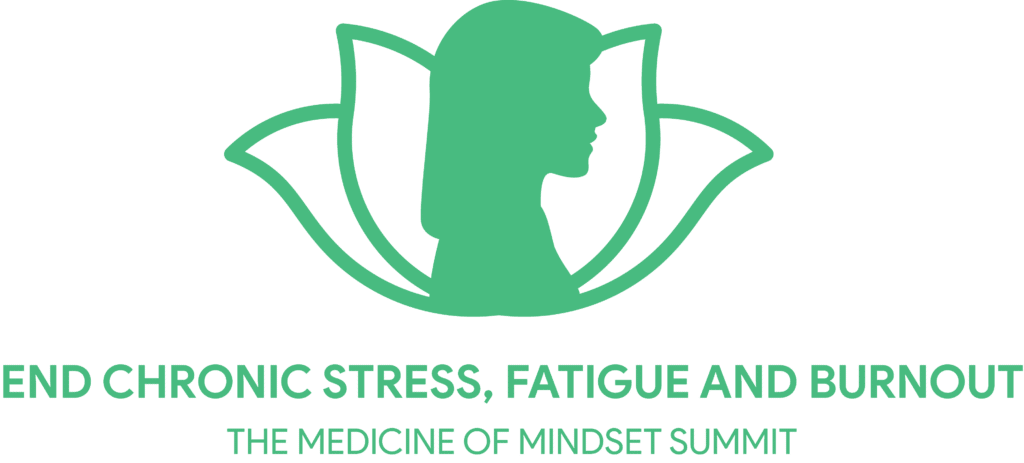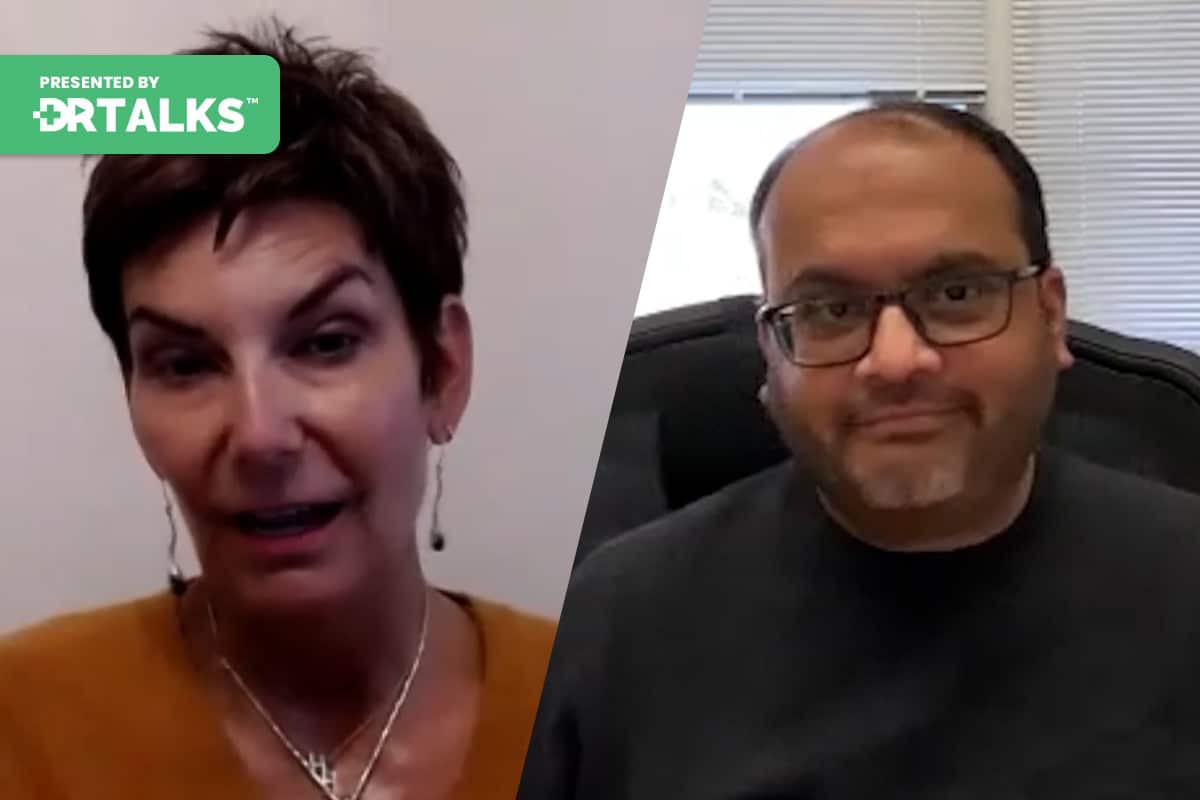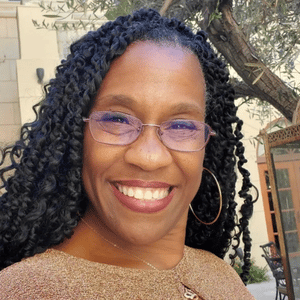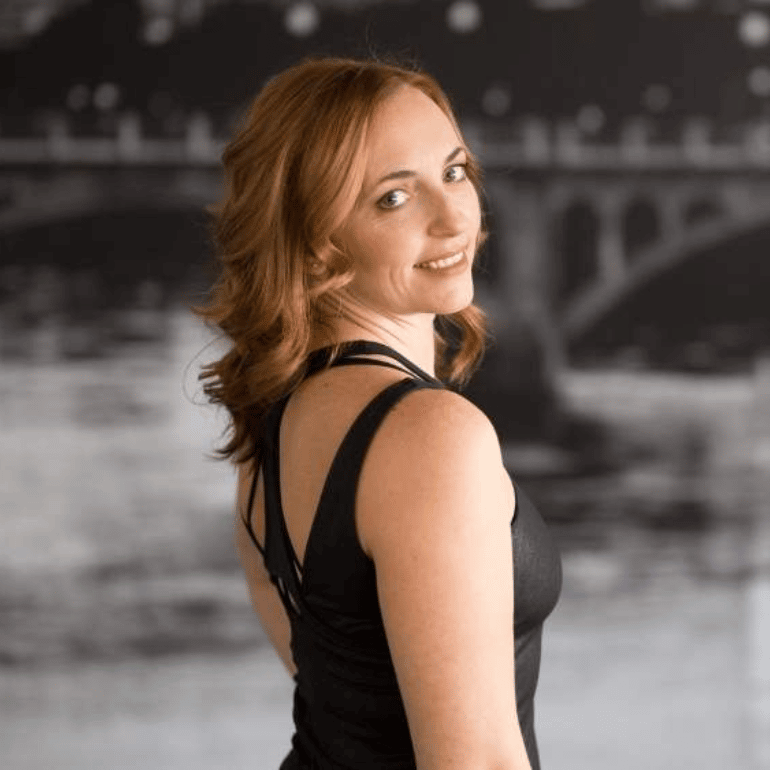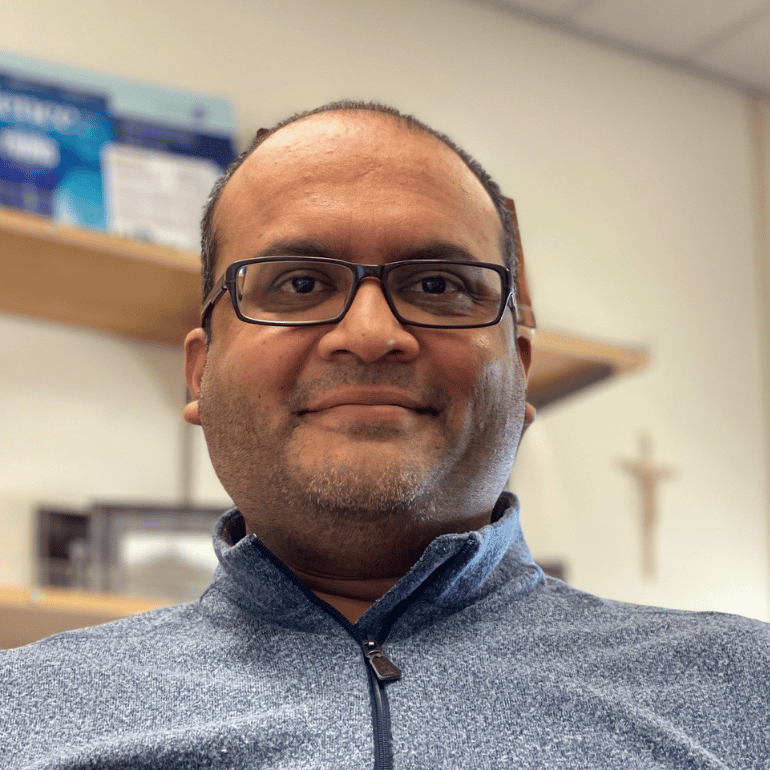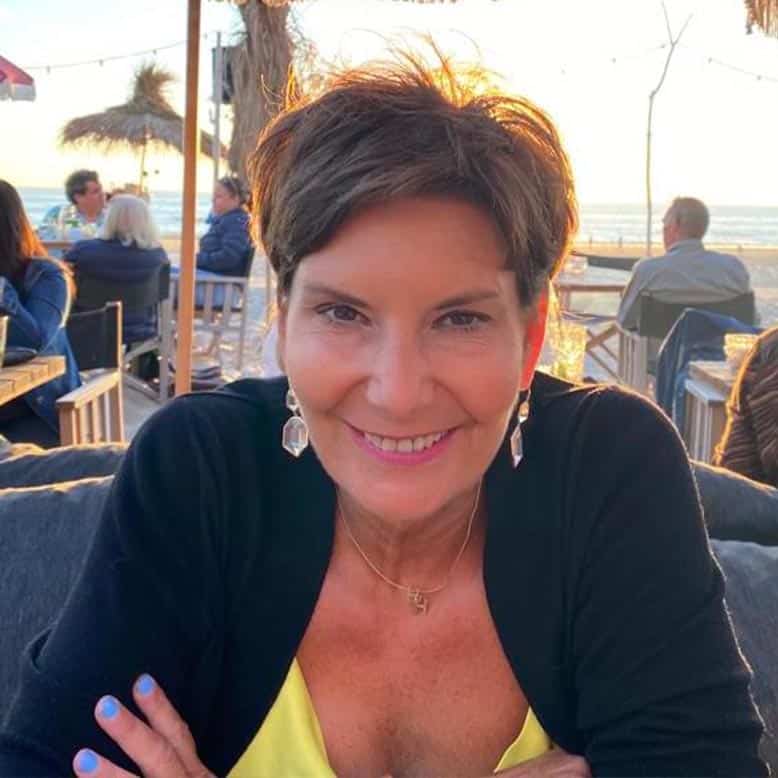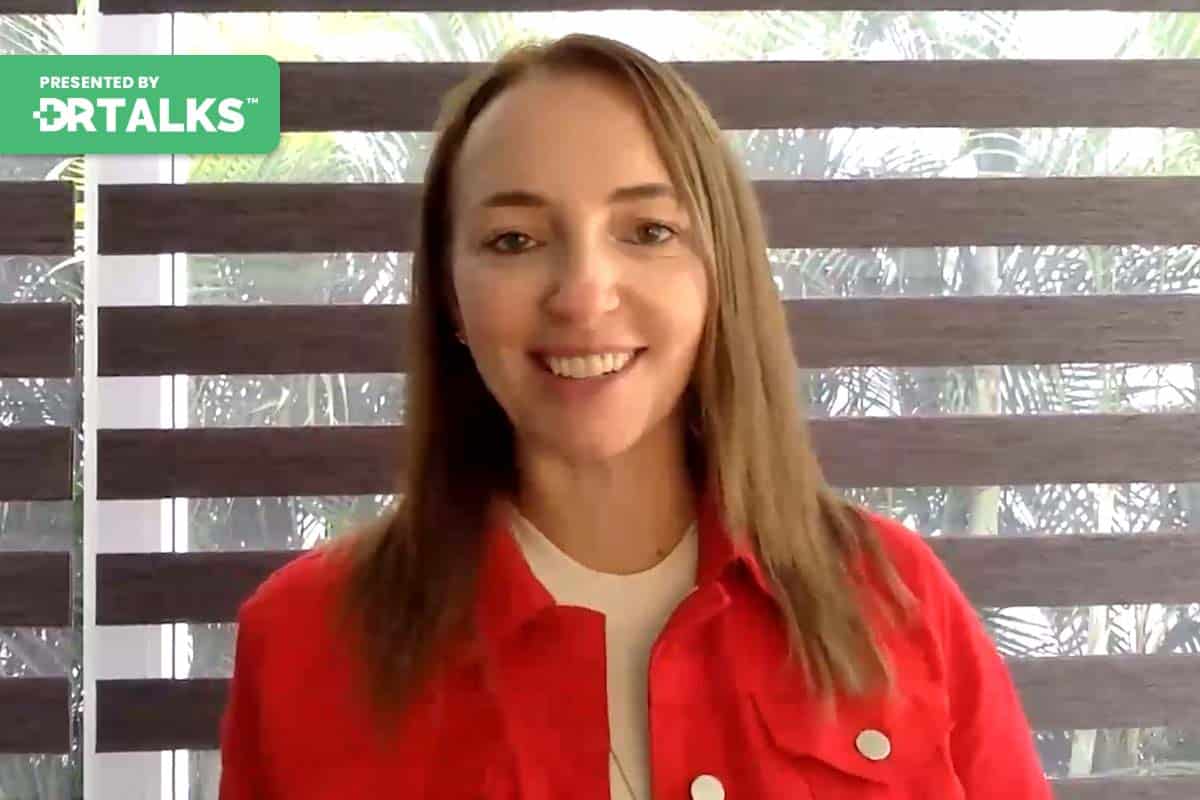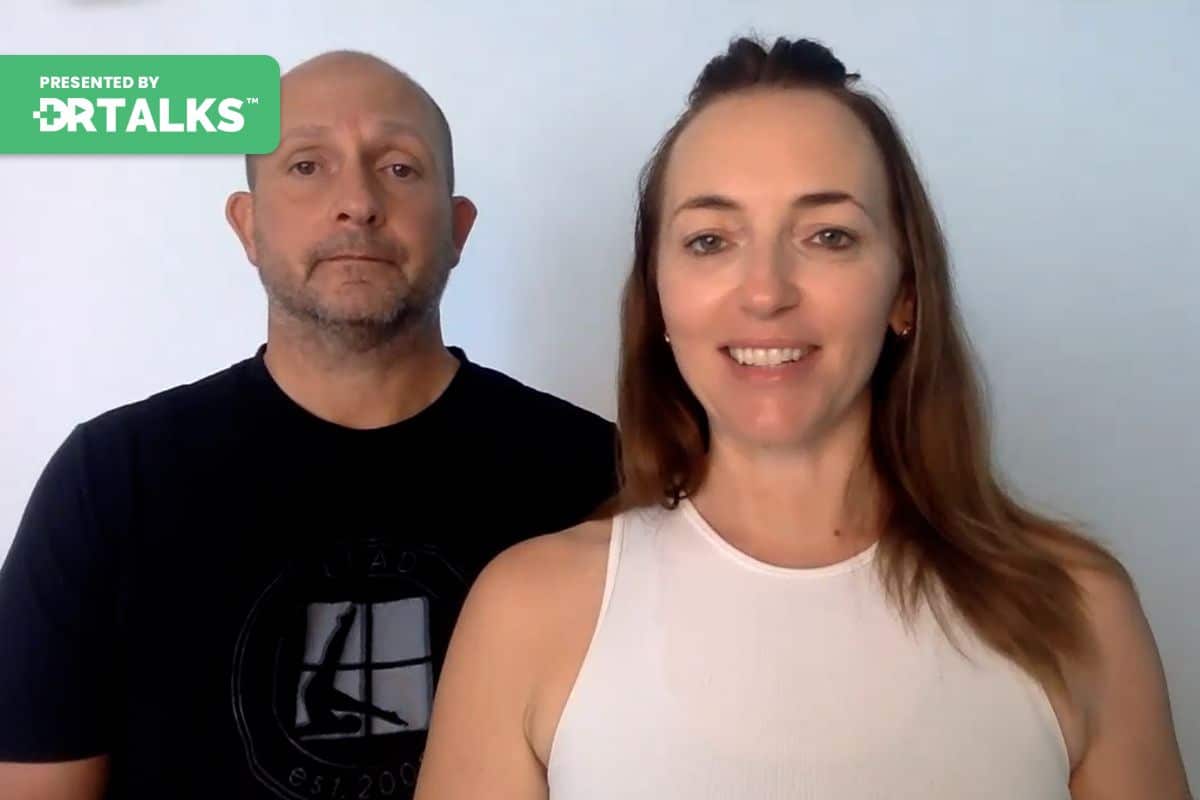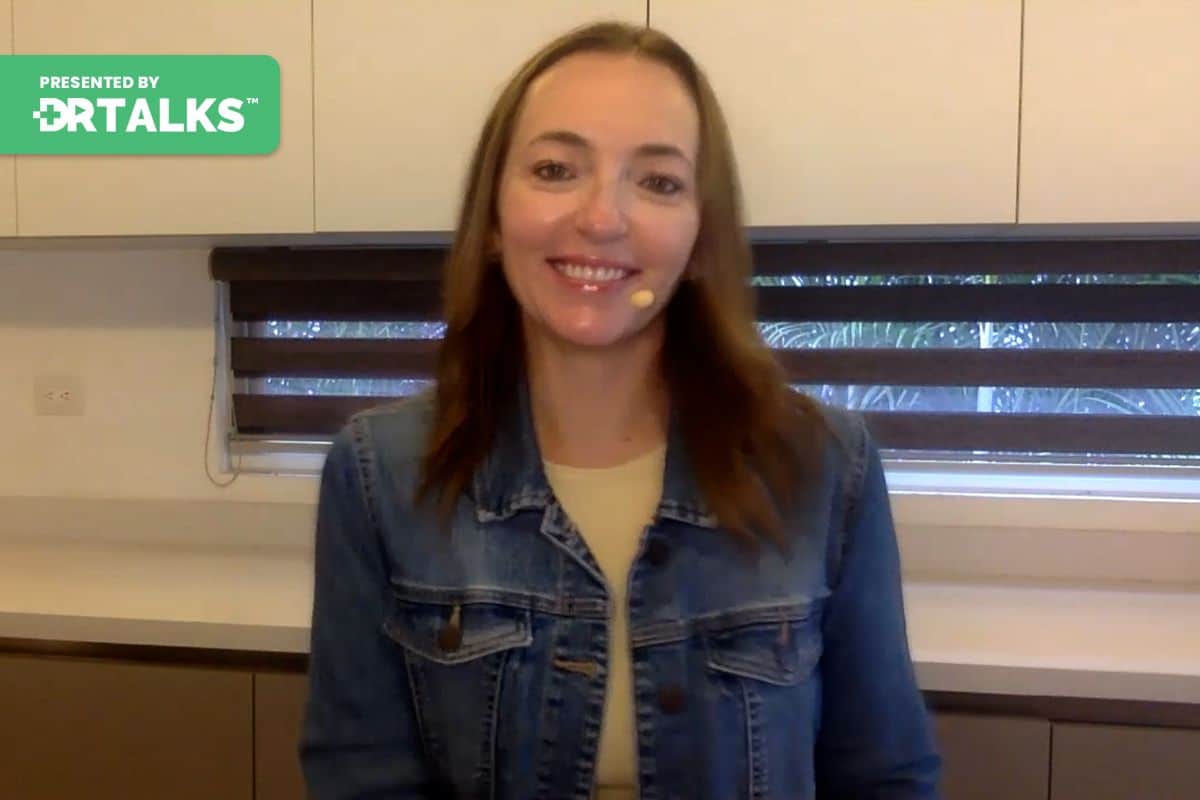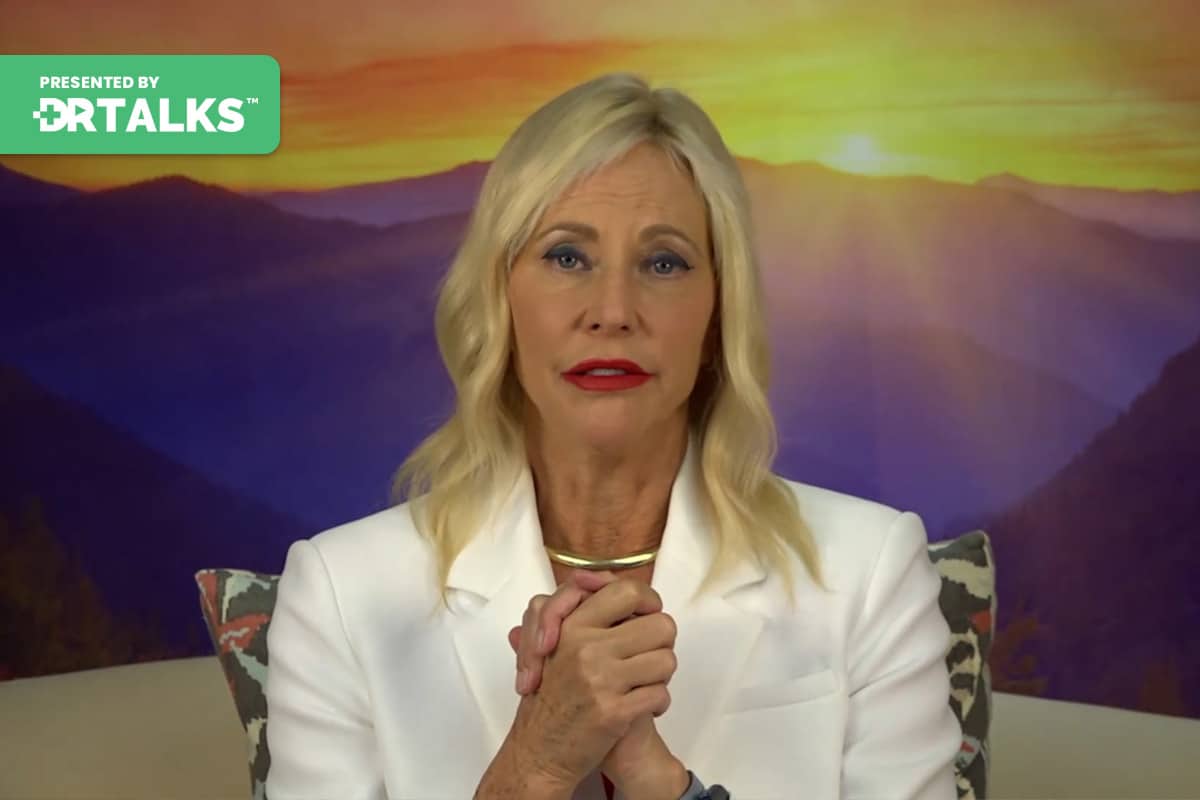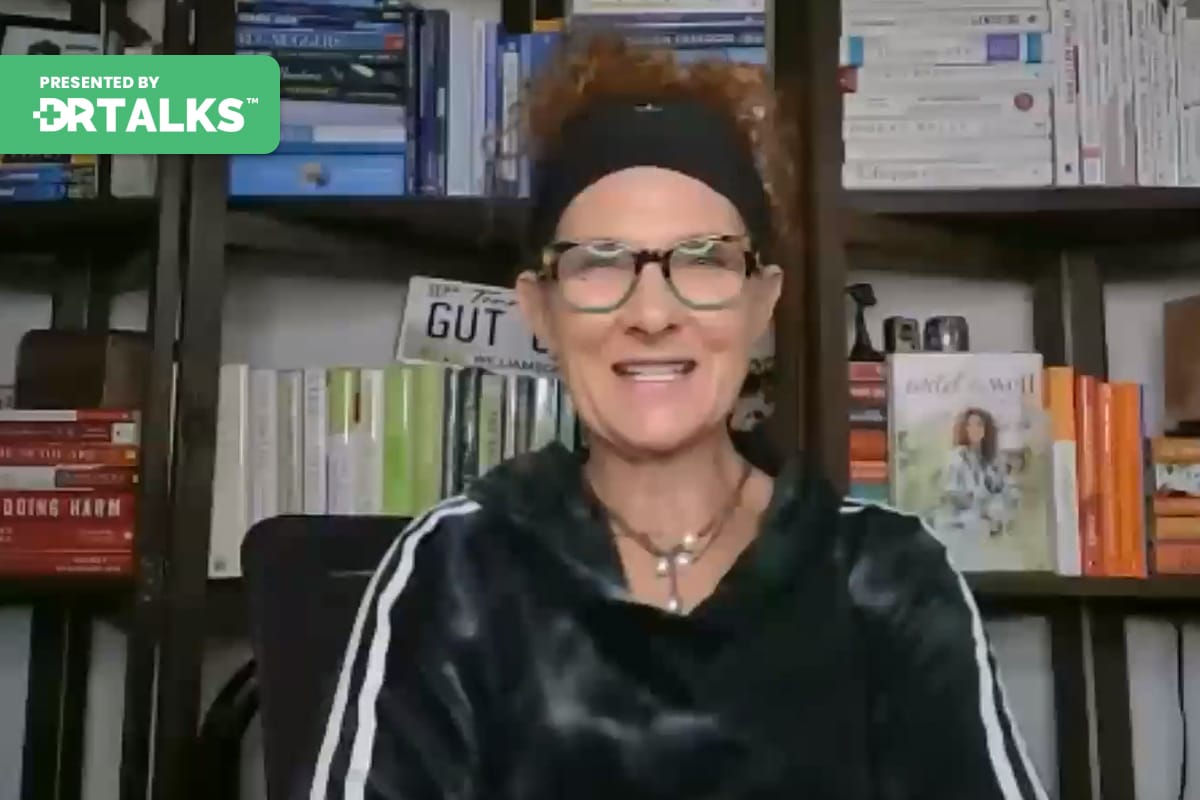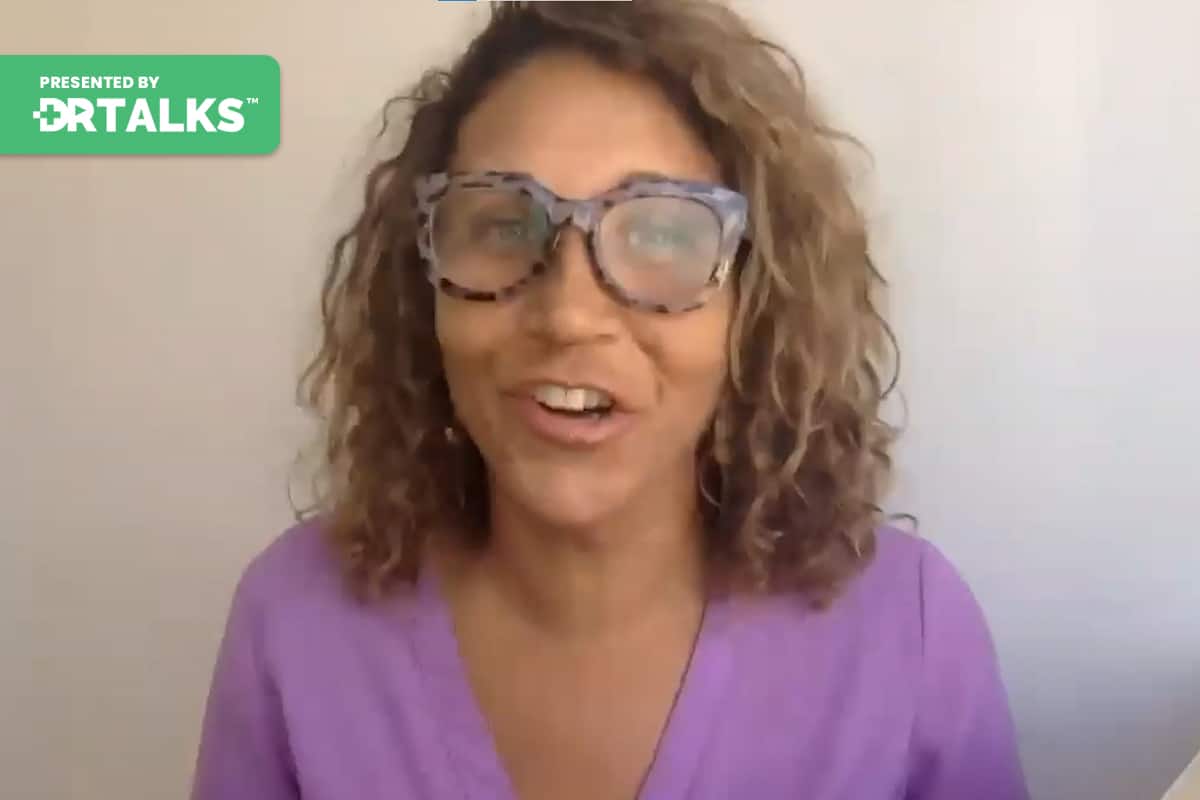Join the discussion below
Hemal Patel, PhD
- Impact of meditation on biochemical changes
- The potential of meditation to impact blood factors that modulate disease
- Large studies underway to cover deep aspects of how meditation impacts human potential
Evie Jennes
- Introduction to InnserScience Research Fun
- How meditation change transform our cells
- Current progress with Dr. Joe Dispenza
Jana Danielson
Hey everyone, thanks for joining us back here at the next episode of the Medicine of Mindset Summit. Now, what we have coming up for you is super unique. It’s your only interview this week that is going to be structured like what you’re about to see. Dr. Anita Jackson, who is my co host, is going to be chatting with Dr. Hemal Patel from U C. S. D. Who is working directly with Dr. Joe Dispenza on the work of how meditation impacts your biology. So that’s the first part of the interview that you’re gonna be watching in a second and then immediately following that conversation, Dr. Anita is going to be talking with Evie Jennes from the Inner Science Research Foundation. Evie is going to share her story just around how this work has impacted her life in a really major way and then talk a little bit about the Inner Science Research Foundation. So buckle up because this next session is going to be absolutely fantastic enjoy.
Dr. Anita Jackson
Hello! Hello, everybody, welcome back to another episode of The Medicine of Mindset. I’m your co host, Dr. Anita Jackson and I’m so honored that today we’re gonna be talking to Hemal Patel, PhD who is a researcher and who has some phenomenal information when it comes to understanding the power of meditation from a science perspective. So Dr. Hamel, Thank you for taking time out of your busy busy schedule to being here with me today.
Hemal Patel, PhD
Good to see you.
Dr. Anita Jackson
Good to see you as well. Okay, so I could read your whole entire bio and I’d probably be here for a while because you’ve accomplished so much. But would you do us a huge favor and just kind of share a little bit about who you are and how you show up in the world?
Hemal Patel, PhD
Yeah. So I grew up, I was born in India, grew up in the midwest, went to college in the midwest at a liberal arts school. I knew I wanted to do science right. And so I majored in biology, but then it was a liberal arts school. So you had to explore other disciplines. And so in that process, my freshman year I took a class on introduction to philosophy and really enjoyed it. And then ended up double majoring in biology and philosophy, religion and then also have a minor in classical studies. So I’ve really been using both parts of my brain to create and invent stuff. I went on to get my PhD in pharmacology and toxicology with a focus on cardiovascular physiology and pharmacology At the medical college Wisconsin and then about 20 years ago moved to San Diego to start my postdoctoral studies. And it’s one of these places that once you’re here you just never leave. And so I’ve never left. I’m a tenured faculty member now in the department of anesthesiology and it’s just been an amazing ride.
So for 20 years we’ve been focused on a single protein that controls stress adaptations and cells. And so we’ve looked at how this protein creates signaling molecular biology, physiology all those things. And we’ve gotten it from test tube all the way into hopefully humans in the next year for A. L. S. And other neurodegenerative diseases. About two years ago we started thinking and talking to others that we’re looking at alternative ways of managing health in their clinics. And I shared an office with one of these guys for a number of years and so he came to me and knew I could do all this molecular biology and said would you be interested in working with us on trying to understand meditation at a much more deeper molecular level. And so we started and then the ride has been absolutely amazing over the last 2.5-3 years and what we’ve discovered.
Dr. Anita Jackson
You know meditation has become a huge buzzword and because so many of us are so stressed and overwhelmed and dealing with this global pandemic still and now we’re heading into this recession so we’re just being bombarded with all of these kinds of external pressures and meditation is one of the ways that we can really ground ourselves. So could you do find what meditation is and what are you finding what is your study about when it comes to using meditation for our well being?
Hemal Patel, PhD
Yeah so we use this term very loosely right meditation but we’re so we’re mainly working with Dr. Joe Dispenza who does events all over the world. He does these progressive workshops which is sort of a taste of what the experience is, like two day events all over the world after you do these progressives, you don’t have to do the progressives. But typically what people do is they get interested and then they do these week long intensive experiences, these advanced workshops, this is where we do most of our studies and then he does these advanced follow up which are 3, 4 days long and it’s more of an intensive experience. And as I’ve gotten to know his process and the more we’ve dissected and studying it does not look and feel and taste and touch like meditation, right? Something else. But that’s a word we use because everyone understands what that is. And so to me meditation is focusing your mind on something that’s whether it’s nothing or whether it’s your breath or whether it’s the tip of your nose, it’s using all of your mental energy and capacity to let everything else go except for this singular focus, right? It’s meditating on some element and there are components of this and what Dr. Joe does, but I think it really takes off to the next level and this is what we’re really studying is what is this evolution of this process that then impacts the human body in just profound ways.
Dr. Anita Jackson
You know? And so many of us are distracted that our focus can, it’s hard to find that one thing to focus that was literally having this conversation with one of my best friends and she’s struggling in her business and we were talking about mindfulness practice and how do we stay focused? And especially as a woman and we’re being pulled to taking care of her husband’s, taking care of our partners, taking care of our Children, taking care of the dog. We’re just pulled in so many directions that we don’t find the space and not even, it’s almost like we know we should do it, but then we don’t do it at all until someone says if you don’t do it, this is how it’s affecting your body and your study is beginning to go into that kind of science, right?
Hemal Patel, PhD
Yeah, yeah. I mean it’s hard to quiet the mind. I mean we’re constantly bombarded by social media, by television, by just the world around us and crazy weird things that happen, right? And it grabs our attention. One of the things I realized after I did, it took me a while to get to a first event, you know, I’m a skeptical scientist, you’re like, well, I don’t know, man. People describe all these amazing things happening and you’re always like, well not to me. And then even after I’ve gone, there’s still a healthy skepticism that I approach all the science with because you have to constantly judge and evaluate and test and and retest and do those sorts of things. But one of the things I realized in my first week long event is I don’t close my eyes other than when I go to bed, right? The majority of us spend our waking moments of the day with our eyes open constantly consuming, being bombarded by the outside world. Sometimes all it takes is closing your eyes for 10 minutes to completely reset and re engage with the problem or the happy thing that you’re dealing with. And, and so that’s the realization is it doesn’t take a lot of time to quiet the mind, but you’ve got to find the time to do it eventually, you know.
Dr. Anita Jackson
And as we learn how to or relearn, I’ll say as we relearn how to allow ourselves to be still to be quiet to close our eyes. Being that I am a very ambitious, very a personality type. I’m very driven. It’s been the pandemic that’s taught me how to close my eyes. So I’m kind of giggling going, yeah, that’s a hard one, but I’m seeing the benefits of it. So one of the parameters around your studies and how is it changing people’s lives?
Hemal Patel, PhD
Yeah, so like I mentioned, we look mostly at these week long events, we just finished a week long where we looked at 820 subjects or our studies have grown dramatically. The initial study we did had about 32 individuals were recruited and we want to look at the different spectrum of meditators and skepticism and experience that comes into it. So one of the things we struggled with early was how do you define a control subject for all of these things? And what we finally settled on was the vacation in control. So someone, usually a spouse or partner of someone who is attending these week long events that’s not taking part in the event. So they’re, they’re, they’re exposed to the same environment, they’re eating similar food, but they’re not engaged in the workshop. They’re literally hanging out the pool or in the room doing some light work but relaxing. And so those are our controls. We also have a group of meditators that we call the novice meditators. So this is a person that’s never been to a week long event and they really haven’t been doing meditations in any other practice for any extended period of time and are cut off is typically 3 to 6 months that you you started exploring, but you don’t really know what you’re doing yet, right?
So you’re new and then we have a group of experienced meditators. These are individuals that have been to multiple week long events. This is a core part of who they are and the majority of them meditate anywhere from 1 to 5 hours a day. I met a woman who meditates five hours a day and she was absolutely amazing. I mean her mind, the ability that she has to quiet and focus and to create is just absolutely astounding. So it’s, you know, with spectrums of experience. And so then what we wanted to do was take these three groups and expose them to all kinds of endpoints that we could carry and sort of measure. So one of the things we did early on was put a garment device on every individual. So it’s a biometric device. You put it on, you essentially forget about it other than to charge. It attracts your sleep activity, stress level, heart rate, heart rate, variability, breathing. I mean, you can if you can imagine it, it captures it right. As we want. Something that’s a 24/7 capture of someone’s physiology. In addition to this, we were doing high end brain electrical mapping through these quantitative electroencephalogram.
A lot of the systems we’ve adapted now look not only at the electrical activity in your head, on the surface of your head, through all the networks that you have, but also on the heart at the same time. And so we want to couple those two signals to see if there’s some connection between what you think. And we normally think what we feel is in our heart. Right? And so the emotion component is the heart and the thought is sort of in the brain and those two things have to connect to get to this euphoric sort of creative state that you’re in. And so we’re measuring the activity in those regions and then we basically take everything that comes out of your stool samples, your urine, your blood, your tears. We take everything and anything that we can find information and the ultimate and even your words, right?
We’re collecting words at this last event. We created a profile where we can get a video capture and so we’re capturing the words that come out of your mouth throughout the week and whether they’re transformative and whether this correlates to how your muscles are changing over the week and and essentially how your sound is right, the intonation you use and a lot of these things that you release from you are a manifestation of your thoughts and your energy that you’ve created. And so what we want to do at the end of the day is create this unique web pattern of what an individual is based on this single intervention of a seven day intensive workshop and see how that person evolves from sort of this disease that they’re in to this really new human potential that they create at the end of that week.
Dr. Anita Jackson
Are you seeing some the little knowledge that I have about neuroscience and the little and the fascination that I have with that as well. Brain based learning, are you seeing patterns you’ve got now enough people to work with and to do all this amazing testing with what are the patterns that you’re seeing.
Hemal Patel, PhD
I mean we’ve done some FmRI studies as well. So Joe did an event in San Diego in April. And so since we’re close to campus we were able to bring 20 people onto campus and actually put them in the functional M. R. I. Machine to look at which brain regions and structures were being altered during a meditative state. So we did this before and after the week and some of the data is just profound. Right? This is the default mode network the thing that sort of creates this issue of the future based on your known past and all the decision things you come up with. Like you know I gotta get this word out next. I’m thinking about this thing coming up after our meeting all those things you fall into this default network. One of the things we observed is during these meditative experiences is that this network tends to fall apart so you’re no longer predicting your future based on your known past.
There’s a couple of things I know that do this but they require you to go to Costa Rica and take some drugs. And so the fact that Joe can Dr. Joe can do this at a week long event by just teaching you how to focus your mind and get you into this state that he does is quite phenomenal and we can record this at the F. M. R. I. Level. We’re seeing some amazing changes in network connectivity with electrical measurements that we’re making in the brain there’s specific circuits of neurons and brain regions that start to activate together. And then what’s even more exciting is that that transformation in how the brain is behaving and functioning leads to a completely different profile of blood markers and other things that we’re seeing. So it’s amazing to think that your thoughts really do recreate who you are from the ground up in terms of biology.
Dr. Anita Jackson
What about in the area of health and wellness? So if someone comes in let’s say with a cold or someone comes in dealing with an extreme illness like cancer, are they seeing are you seeing results of when they participate in some sort of a meditative state, like the one you’re describing that they’re being transformed because I want our audience to hear that you get your power back by learning this type of technique.
Hemal Patel, PhD
Yeah. So that’s one of the things that drew me to this both as a skeptic and now as a scientist trying to solve what I see. And so I’ve been to lots of events now and and one of the things I like to do is be a fly on the wall and just sit and watch you know I’ll do some of the meditations but it’s almost sometimes important to to keep my eyes open and see what everyone’s doing and you notice these certain things that then you want to break apart and study. And so one of the things that I’ve noticed that a lot of these events is there are spontaneous healings that happen from all sorts of diseases, right? You can’t walk and you’re now walking, you have A. L. S. And you were in mobile and now you’re able to move, you have cancer and that cancer is gone.
The human in me is amazed and empathetic at this transformation that people have. The scientists in me, there’s this nagging thing in the back of my head that says, there’s no way that this is happening. Right. And so we were really designing studies to suggest this. And we have very very preliminary evidence to suggest that individuals with diseases are transforming to look more and more like healthy individuals when you look at the gut microbiome or their blood markers and those sorts of things. And so we think that eventually when we have these mega studies with thousands of people that were studying over time. Done, we’ll be able to make larger claims about what this practice that Dr. Joe does is allowing transformationally to happen in individuals with cancer with anxiety with depression and 50 other diseases that show up in our population at these events.
Dr. Anita Jackson
You could be a threat to the whole medical industry.
Hemal Patel, PhD
We hope not. I mean I hope not. I see this is really something that is not antagonistic to Western medicine. I think one of the things that we all fall into our it’s either this way or that way and there’s no middle ground and I think what most religious practices will teach you is that the life of moderation is what leads to happiness, health and longevity. And I think this happens with health care as well. And I have a religious background, you know, I’m a Christian in terms of how I see faith and an evolution. And there’s that joke in Christianity where you’ve got this guy who there’s this severe rain and flood happening and he’s waiting for God to save him. And there’s a guy who comes along on a dinghy and he said no God’s gonna save me. And then there’s like a helicopter and then there’s this rescue team and ultimately this guy drowns.
And he’s sitting at the pearly Gates and asking Saint Peter, what the hell happened? Why didn’t God come? And he’s like, what are you talking about? We sent you a boat a helicopter and you didn’t take it right? And it’s all in our mindset of what we expect and what we want that limits our ability to to take advantage of every resource that we have at our disposal. So what we really want to do with the science is think about how we can integrate this approach for people who potentially don’t want to do Western medicine, but then the ones that are into Western medicine, how can we integrate those two paths together to really create a synergistic effect so that the human has evolved and really gets to that healed stage and they can empower and thrive.
Dr. Anita Jackson
Is there any technique or part of meditation that we, the audience could take right now? Let’s say someone can’t get to you and to Joe just Dr. Joe Dispenza this event. But they still feel this pull towards I’ve got to slow down. I’ve got to, you know, find this place to be still and to focus. So anything that you could teach us or tell us that can maybe help us do that.
Hemal Patel, PhD
Yeah, I do this with my students, right? We’re by nature. I’m a procrastinator. I put things off till the very last minute. And my wife, who is way smarter than I am, has very good advice and I give this, I dole this advice out, but don’t take myself as well is we like to schedule things, right? And so we’re guided by our calendars. I look at my calendar every day that tells me where I need to be, what I need to do. So why not use that as a tool to schedule time for yourself. Right, Put in that half hour into that schedule and say, this is my time to either meditate, this is my time to focus on this assignment, this work, so that you’re not consistently pushing it off? And it’s like what we just started talking about earlier on is it’s you have to find time to close your eyes, right and just find that 15 2030 minutes and and if you can an hour, it’s amazing what cumulative re relaxation focused time will do. And we tend to waste a lot of our time. You know, we were at some events a couple of years ago.
And this guy was describing how he would just sort of, he was in Africa and he was part of some water project and he was observing this kid every day, he would walk five miles from his house to this one spot that this entire village could get water and he would fight to have to get to water and he would fill up the buckets and then take them home. And that was his 7-8 hour a day. And he’s like go home tonight and ask yourself, how long does it take you to get to water? I mean in my house I can get to 13 sources of water in under 20 seconds. So what am I doing with the 24 hours and x minutes of my life that I’m not wasting getting water, we tend to waste a lot of our time in the Western world and if we could focus this on ourselves, our immediate community and the rest of the world around us, we’d be living in a different world.
Dr. Anita Jackson
And in that order from my humble perspective. So what’s next for the programs or the studies that you’re doing right now? What’s coming up next? How you continue to expand this?
Hemal Patel, PhD
Yeah. So we have a freezer full of samples. So what’s next is trying to raise the funds to look at these samples? Just from quantum 2.0, so we call these studies quantum the big studies that we do is the quest to analyze 1000 humans meditating. And so we started the quantum one study in January. It went nine months. So we followed people nine months out with their garments and surveys and things like that. And then quantum to just launched last week, the first week is done. So we have thousands of bio specimens in the lab. I think the last math was we have about 17,000 tubes of samples that we’ve collected during that week and archived in our freezers. It’s gonna take a lot of resources to get through that time. Money, people, all these things that we need to to get at and, and the goal is really to use the amount of and and depth of samples that we created and collected to create a unique signature of who the individual is when they meditate. And as I mentioned, the advantage of these Quantum level studies is you’re not only looking at healthy individuals, there’s usually about 100-150 people out of 1000 that have nothing wrong with them. Right.
They don’t check any disease box. So they become our sort of happy control set. But then we’ve got cancer, anxiety, depression, PTSD, autoimmune disease, you name it, it’s represented in this. And now we can look to see how do those individuals look before the event starts and they look very different than the healthy. And then are they moving closer and closer to that healthy individual? By building this large deep map of the healthy and the diseased individual evolving through this one intervention we think that we’ll be able to identify ways to help people move closer and closer to that healthy. Right. And that’s sort of the goal of all of this is to take the massive amount of information that we’re gonna generate over the next hopefully, I mean it’s time and resource intensive. So the more money we get, the more people we get, the more time we get, the faster we can run through all the samples and the faster we can create. But I would imagine that in the next five years we’re gonna have some real answers about how to use this to guide human health.
Dr. Anita Jackson
You know, it’s interesting you kept saying evaluating the difference between a healthy person and a diseased person. I have a background in psychology and like as I heard that I’m like I never thought of depression, anxiety or overwhelmed or all of those mental. I know that their disorder but I never thought of them as a disease like a disease that’s actually affecting your brain and affecting your body and affecting your life. And I think if more of us may be thought of it that way we would take more responsibility to I don’t want to live a disease life or a dis ease life. So I got to take my power back to start changing this. Yeah.
Hemal Patel, PhD
I mean, it’s to define what healthy is, right? It is different in different settings. One of the things we’ve I’ve tended to focus on is most of us will study disease to understand disease. So a clear example of this as a diabetic, right? So if you want to understand how to cure diabetes, we tend to create diabetes in animal models and human models and we study them and we have these controls that aren’t diabetic and don’t have the same profiles. The head scratcher for me has been to study diabetes and to find a cure. Maybe we need to look at a human population that looks like they’re diabetic but they’re not right. The ones that are slightly overweight or obese but they’ve got some protective element inside them and this is what I think will eventually sort out in this population of Quantum is there are healthy individuals and they define their health as they don’t check any of the disease boxes whatever those may be. But they may not have the perfect physiology. They may not be slim. They may not have the ideal B. M. I. They may you know smoke, they may drink, they may do these other things. We’re capturing all of that element but they’re doing something or they have some adaptive advantage that will help us understand how to adapt those that don’t have that advantage. And that’s where we’re really after. I think at the end of the day.
Dr. Anita Jackson
Every time I talk to you I want to become a neuroscience. Like I went down the wrong path.
Hemal Patel, PhD
I should have become biologist. I’m gonna have to become a neuroscientist in the next couple of years.
Dr. Anita Jackson
I’m like this is making me want to go back to school and get another degree. So I want after everything that you’ve shared with us today. Is there anything else you would love to share that you want to leave with us in regards to what you’re studying and what this is all about.
Hemal Patel, PhD
Yeah, I mean I think this is the movement forward, right? We need to evolve as humans and I think that this is one of the ways to do it. One of the recent thoughts I’ve had is I’ve I’ve always known I’ve had a brain, right. One of the first things I read when I was in my intro to philosophy class was Rene Descartes meditations on first Philosophy and so in this small but dense book, he describes the existence of God and the way he ultimately resolves that God exists is we are an intellectual being. I think therefore I come from this meditation on first philosophy. And so I’ve always thought of my brain as as not, I think therefore I am kind of mentality, but it was something that I can use to solve problems and create and invent and I never realized the power of turning it internally, right, That it’s something that doesn’t solve something outside of you that can solve the problems that are within you. And I think this is what I’m learning through this process, is that the brain is a very powerful tool to fix who and what you are from the ground up in terms of your molecular biology, to your biochemistry, to your proteins, to the core of every organ that you have existing inside you. And it’s profound and I think if we can get more and more people to think about the potential and the power of the mind, it’s gonna be a transformative world we’re in.
Dr. Anita Jackson
I can’t tell you how much that last statement means to me because that’s why the revelation I got through this whole entire pandemic is that we’ve got to get back to owning our own power, whatever that looks like. And I like, you totally agree that we’ve got this beautiful, gorgeous powerful brain that God’s or spirit, whatever word you want to use has given us and when we start to get back to home, get back to center, Get back to the power that’s within us. We truly can heal ourselves which eventually is gonna heal our relationships, which means our family, which means the people we interact with and that means our communities and that means our world and I am for it, I am so for it. 100%. So thank you so much for taking time out of your business schedule. I know you have so much going on, so I appreciate you with me today, phenomenal conversation as always, I still appreciate you and thank you everybody for being here with us on this amazing conversation for the medicine of mindset. Until our next episode, take care of you.
Dr. Anita Jackson
Hello. Hello everybody. Welcome back to another episode of the Medicine of Mindset. I am your host, Dr. Anita Jackson. And joining me today is Evie Jennes who is from Inner Science Research Fund, right Inner Science Research Fund. And I’m looking forward to having this conversation with her because she’s going to really help you understand this entire process of what they do to help you be well holistically. So everyone, thank you so much for being here with me today and sharing a lot about what you do at Anti Science Research fund.
Evie Jennes
Thank you for having me.
Dr. Anita Jackson
Alright, so my first question to you is tell everybody a little bit about who you are and how you show up in the world and how you got connected to enter science.
Evie Jennes
Well I’m a mom of three, that’s probably my most important job and I have a wonderful husband. I also part owner of a software company, so I’ve always been on in the business world, so to say at a particular juncture, about three years ago I was diagnosed with the stage four breast cancer after having it in 2016, which was never supposed to come back. I had such a great response to all the treatment that I did and all the holistic stuff I did. So that sent me on a journey of okay, well you know, clearly I got to do something here because this wasn’t supposed to come back and I felt as though I was contributing it to coming back and within 24 hours I was introduced by I live in Europe, although American because you hear the accent to Dr. Joe Dispenza, both from American friends and European friends. So I took that as a sign. Okay, I need to check this guy out, went online, looked at podcasts and so forth.
I was totally sold and I decided that I was going to go all in on this and combine that with the east and east west. For me, I’m a believer in the east meets west, there’s gaps in both. And so I like to have a complementary approach and it has been extremely successful for me. The prognosis was pretty lousy and uh I came from some pretty dark places to being healthy as you can see it’s not a straight line. You know you have your bumps and new lessons that you have to learn. And through this journey I met Dr. Hemal Patel who you’re gonna interview I think tomorrow who is a PhD at U. C. S. D. And they were so intrigued by the success of the Dr. Joe Dispenza meditation method that there was seed money found by a donor to actually clinically I should say clinically. I’ll let him say that to research this on the cellular level. So really understand how meditation, not just affects heart rate variability and blood pressure but really how does it change biology and physiology. So coming out of this uh there was a nonprofit set up called the Inner Science Research Fund and I was asked to be one of the founding board members along with two other people. And that was last summer we launched in January of this year. We have a stellar team.
And what our mission is is to fund this research on again, how meditation changes your biology and physiology. And it’s stunning when you see the response rate within this community that meditates and it’s not like, you know, five minutes a day. I mean, this is a commitment, you know, the bigger problem you have, the more you need to meditate. But there’s a particular method of how you’re taught to meditate. It’s not just kind of sitting in zen mode with, you know, thoughts coming by. It’s really about manifestation. It’s a combination of epigenetics, neuroscience, quantum physics and again, I am not the expert on explaining this Dr. Joe is, but what we have been able to do is generate some pretty stunning early results on what meditation does to cancer. What meditation does to viruses the microbiome. And the objective here is to write a peer reviewed paper.
And again, we’re partnered with Dr. Hamel Patel tell who’s with UCSD. And then there’s other institutions that are also involved in the research so that we can have this evidence published in one of the big journals like New England or Nature or whatever, so that we have the credibility and the evidence to make this part of the healthcare system and people’s daily lives. So really, you know, the overall objectives is to have people meditate, like they brush their teeth, it’s just something they do every day and for people to have the um option that they’re offered this by their physician, so that’s what we do and it’s been an incredible experience I’ve met, you know, just all inspiring people of what they have done with their being and their body through this work.
Dr. Anita Jackson
I am sitting here listening to how you’re describing what inner science does and I’ve got chills going through my body because what I hear is you’re giving people the option to heal themselves without medication to to take their power back in really changing the physiology of the Now I I know a lot about meditation and I understand the neuroscience of how the brain works and all that kind of fancy fantastic stuff. Even though I’m not licensed down that level, I get it. And I have a background in psychology, I’m just like, I’m giddy right now, like who who knew that, learning how to be still in a world that constantly pushing us to be busy, especially women to be busy and to be taking care of everybody else, that we get to learn this powerful simple, can I say that simple kind.
Evie Jennes
It’s not difficult, but there is a recipe of how to do it.
Dr. Anita Jackson
Okay, okay,
Evie Jennes
You know, and again, I don’t want to go down the road of explaining it but I’ll do kind of kind of highlights, I mean the key thing is one is you have to determine what it is that you’re trying to achieve. The second thing is what are you possibly doing that is blocking that. And then the third thing is changing that behavior. And the fourth thing is when you’re meditating, learning how to go into the quantum field, you know kind of no space, no time and then manifesting and pulling what you want towards you but it’s not just thinking it, it’s feeling it. So the feeling is the most important so if you want to feel healthy or strong or you know happy in a new relationship it doesn’t all have to be health related although a lot of it is you have to literally feel that and you can come up with pictures in your head to do that.
So to just give you one quick example of myself to kind of put it in you know a way that people can understand it is I was addicted to stress many people are I love the the adrenaline, I like the high of it, I knew it was bad for me, I have no idea why I was addicted to it, Why are you addicted something that’s so bad for you, I was so I knew that I had to change that and so what I did is I and it’s exhausting is I micromanaged every thought and every feeling that I had and as soon as I would feel arise. Yeah, the pajamas thrown across the kitchen table, right? The wet boots to the door that you trip over. You know the customer who is completely unreasonable, whatever the case may be. I had it immediately. I would turn my head and I would immediately go to a lagoon in Thailand, which is this my happy place. And I would say stop and I would call myself down and this went on for a couple of months. Until I really realized that I changed when one of my daughters did something that I normally would have pretty much flipped out about and I was completely chill and she said I have four words. I love Joe Dispenza.
Dr. Anita Jackson
That’s funny.
Evie Jennes
They were like, okay, your new mom now, right? It wasn’t that I was a horrible mom, but I was an uptight mom, right? And I was not anymore. So that’s the part of the behavioral change and then you have the part of learning how to meditate and that’s, that really is practice. So many people say, I can’t meditate. All the thoughts come in, blah blah, blah, blah, blah. Well it, it’s also like when you learn power point or cell or whatever else. I mean it’s it’s difficult, right? So it’s all about practice. Practice practice. And even though I’ve been doing it for three years, every single day twice a day, I still have, oh I forgot that email. Oh gosh, the laundry is still on the drive. And then the key thing is how quickly you can rebound from that and go back to where you need to be and not go down the rabbit hole. So there’s very few people that I know that don’t have thoughts come in that are very proficient. So it shouldn’t be a barrier for people to try.
Dr. Anita Jackson
Well I want people to know from a brain based psychology perspective. You know men have about 25, 30,000 thoughts a day. Women have double that. So you can’t you can’t really control it but you can narrow in on what you’re choosing to focus on it. Obviously with meditation this is powerful. So how does meditation and what you do in inner science impacts the mindset. So like what would mindset really mean to you? And how does learning how to meditate, empower that?
Evie Jennes
So when you say mindset, can you give me a…
Dr. Anita Jackson
So great question in a general sense mindset is your thoughts, your feelings, your emotions and then those things affecting your behavior or the habits that you develop. So there’s a mindset about how you feel of living well the relationships you’re in, how you deal with money on the value have to yourself. You’ve got a pattern of mind or in you got it.
Evie Jennes
I totally get it. My suggestion always is to people that ask me is pick one thing, if you try to pick five different things, you’re going nowhere. So for me the first thing I had to pick was stress and you really master that and once you’ve mastered that then you go on to the next thing and I’m a big believer in continuing to peel the onion so that you continually grow and go deeper and have more life lessons and you only do that by reflecting and really understanding being honest with yourself of what more you can do to change the behavior that you think is blocking you from getting from where you want to be.
Dr. Anita Jackson
Now I also know that with inner science, you have something called Moonshot, what’s that? Can you explain that a little bit for us, What is that?
Evie Jennes
Well the you know, the Moonshot is there’s been, we had a lot of debate around the Moon shot, how much money we would raise, that was the big one, you know, as far as you know, billions of dollars to be able to really put this out globally. So the idea is that meditation becomes accessible to every human on the planet so that there can be empowered, heal and thrive.
Dr. Anita Jackson
I love that. So I like the idea of we’re shooting for the moon, we’re actually going after making this huge intention to heal our planet. One person at a time through this process of learning how to do meditation right? Cause there’s so many teachers and leaders and speaker who are out there and thank God that they’re there. But this is going to show that’s what I love. There’s science behind it. You’re changing someone sells like you’re changing your D. N. A. to align for success.
Evie Jennes
That’s exactly correct. And so there’s been a lot of research on meditation, but it’s mostly been, you know, heart rate variability, you know, stress levels, blood pressure. It’s really has not been so much on the side of the level, really not at all. So we were the first one to really dive into this when we started, they started before the nonprofit was set up. So you know, I guess about two years or so ago and we need to have this evidence in order to convince physicians that this stuff works and that is not woo woo. And so that’s why there is a massive effort and we have incredible donors. We have people that give us hundreds of thousands of dollars. We have people that give us $10 a month and we are so appreciative for whatever anyone can contribute.
And we have made this community called the catalyst community where we all meditate together once a month. There’s probably 3200 people now in the community, not everybody’s on every week of course for every month. That would be a little crazy. But there’s probably 10 to 15% of the community on every month. And it’s growing. So we only started this a few months ago. We have different benefits, you know, for monthly donors where you get a chance to win a week long retreated at one of Dr. Joe Dispenza’s events, you get the meditation, um, that is specifically made for our catalyst community, that sort of thing. Because we really want our donors to feel part of this, right? So, you know, the plan, it’s pretty out of balance right now. I think we all can agree on that and all of these people feel that and know that and they want to help in changing that.
Dr. Anita Jackson
Yeah. The two things I want to kind of allude to or bring light to, I guess is gallup research galloping because the research company, what they do is they assess what’s happening on the planet if you will from a analytical research, human workforce perspective. So they just released a report in august stating at the very top and big bold letters, the world is suffering, the world is suffering. So based on their analysis over the past three years, their research is proving that the world around the world is suffering. The second thing is in 19, I think it was 84, if I remember correctly Washington state that this huge prayer and meditation initiative for their state and it was like thousands. It starts off with 100 people. And then it grew to thousands of people and within a year’s time crime had dropped dramatically. Like 21-24%.
Evie Jennes
I totally believe that.
Dr. Anita Jackson
They were having the beautification, that’s the word they used for the city changed completely. Like people were taking more value and pride in their city and the way it looked relationships were improving just because they were coming together and like you and like what you’re doing with the catalyst having different people spend time in prayer and meditation to heal energetically. So if it can do that in a huge state that had a huge high crime rate and change it. I think they’re even still they could be still doing it now. I know that they did it for a while. Imagine learning how to meditate that it changes your whole entire physiological being. So that’s gonna change your energy. That’s gonna change your frequency. That’s gonna change your vibration. That’s going to change how you relate to your family, how you relate to. I just like I’m literally on fire right now. I feel like I need to take off the clothes. I’m excited.
Evie Jennes
Example of this is that we I should say we Dr. Joe Dispenza and company. They do these events around the world and during towards the end of the pandemic. It was mostly in the U. S. Was often in Marco Island at the JW Marriott. They were amazing. They are just amazing the way they accommodate. I walked in and I checked in, he said, are you part of the, you know in Cephalon? The Dr. Joker? I said well not really in with winter science but you know, there’s a collaboration and partnership. And he said we love when all you guys come for two weeks, we’re waiting for the 1500 people that go to these retreats to come. And he said the energy of the whole place changes. And I was so taken back by that the manager literally came out to tell me that. And I thought now just to your point, what if we had pockets of this around the world? How would that impact all the things that you just said?
Dr. Anita Jackson
I’m just giddy. Like okay, I’m in, you don’t have to tell me twice. I love this. Is there anything else that you think you need to share in regards to what you do and how this impacts the medicine of mindset that you want everyone to the last piece of wisdom you wanna share.
Evie Jennes
I think we’ve covered all of the high points. You know, now I’m gonna do a little call to action. Right? So this is part of it and I’m being completely transparent here because I don’t want to come off as like a used car salesman because that’s not at all. We are about, we’re very much a soft sell. We would love people to join us on this. Again, it’s innerscienceResearchfund.org. You can see us look us up on the website, check out what we do, how it feels to you. If it resonates, please join us in any way that you would like to. And again, we are so thankful for all the support that we have, not only in the US, we have, we have donors from, I’m going to venture to say more than 40 countries. So this is a global thing now. It could be one person in one country. So I want to be open and honest about that and most is in the US because this is where we spend the most time. So our arms are open to anyone who would like us to help us bring meditation into people’s daily lives and into the healthcare system where it really impacts people’s health and empowers them to heal and thrive.
Dr. Anita Jackson
I think this interview and the interviewer I get to have tomorrow with Dr. Hemal is going to be amazing and I’m sure many people are going to say yes, I’m interested in learning how to really, really transform myself from the inside out and from the outside in. Thank you so much for being here with me today.
Evie Jennes
So thank you everybody.
Dr. Anita Jackson
Thank you, we’ll see you next time. Take care
